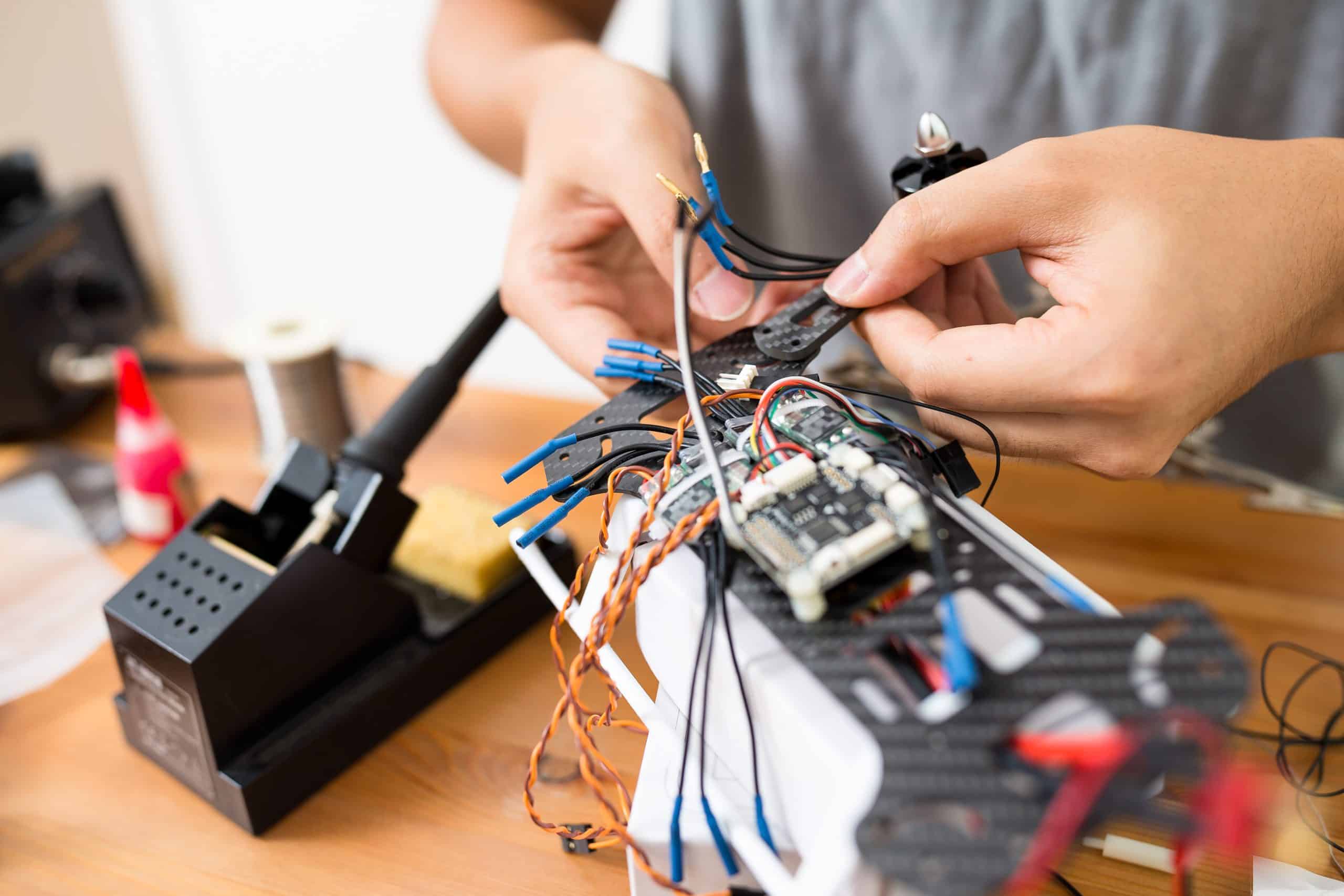What Are the Legal Aspects of Drone Usage in Real Estate Marketing and Inspection?

In the booming real estate sector, marketing has taken a dynamic and advanced turn. The incorporation of drones for property showcases and inspections has revolutionized the industry. These high-tech gadgets have brought a paradigm shift in the way properties are marketed and inspected. However, the use of drones, also known as unmanned aircraft systems (UAS), is not without its legal implications. The Federal Aviation Administration (FAA) has set out regulations that limit and control the use of this technology.
FAA Guidelines For Drone Use
The FAA, the national aviation authority of the United States, has put forth necessary regulations for commercial drone usage. The regulations cover the aspects of operational limitations, remote pilot certification, and aircraft requirement.
Avez-vous vu cela : What Developments in E-Paper Technology Are Influencing the Design of Future Computers?
The FAA’s mandate is clear: drone pilots engaged in commercial operations must comply with the provisions of Part 107 of the Federal Aviation Regulations (FARs). Complying with these regulations ensures that the use of drones in real estate does not violate any laws or encroach on private property rights.
Some of the FAA’s key regulations include:
Dans le meme genre : How Can Ambient Computing Make Smart Environments More Intuitive and Seamless?
- The drone must weigh less than 55 pounds.
- The drone must remain within the visual line-of-sight of the remote pilot in command.
- The drone must fly under 400 feet, always remaining below any surrounding obstacles.
- The drone may not operate over any persons not directly participating in the operation.
- The drone can only operate during daylight hours or twilight hours (30 minutes before official sunrise to 30 minutes after official sunset) with appropriate anti-collision lighting.
Becoming A Certified Drone Pilot
Becoming a certified drone pilot is a necessary legal requirement for anyone looking to use drones commercially, including real estate professionals. The FAA requires that drone pilots pass an aeronautical knowledge test to obtain a Remote Pilot Certificate. This certificate is essential for anyone intending to fly a drone for commercial purposes, such as real estate photography or inspections.
The FAA’s aeronautical knowledge test covers several topics, including airspace classification, emergency procedures, aviation weather sources, and interpreting sectional charts among others. An understanding of these topics is crucial to ensure safe and legal drone operations.
Drones in Real Estate Marketing
The use of drones in real estate marketing has the potential to offer a unique perspective of properties. Aerial photography and videos can provide potential buyers with a bird’s eye view of the property, offering an overview of the property’s layout, the state of the roof, and the condition of other hard-to-reach places.
However, real estate professionals must ensure they are following FAA regulations when using drones for marketing purposes. For instance, they must avoid flying their drones over people not involved in the operations, ensuring the drone remains within their line of sight at all times, and only operating during permitted times.
Moreover, real estate professionals should respect privacy rights. They must avoid capturing images or data of neighboring properties without consent as this can lead to legal issues related to invasion of privacy.
Drones in Property Inspections
Drones are also changing the way property inspections are carried out. They provide a safer and more efficient method of inspecting areas that are difficult to access, like roofs or tall buildings. Drones equipped with high-resolution cameras can capture detailed images and videos, allowing inspectors to identify potential issues without the need for physical access.
Yet again, these inspections must comply with FAA regulations. Professionals should avoid flying drones close to other aircraft or in restricted airspace. They should also take care not to fly over people or moving vehicles.
Additionally, inspectors must consider the privacy rights of others. While the drone is in flight, it should not capture images or video of adjoining properties unless permission has been granted.
Drones have indeed opened up new avenues in real estate marketing and inspections. They offer innovative and efficient ways of showcasing and inspecting properties. However, the legal aspects of drone usage are significant. It is imperative that real estate professionals familiarize themselves with the FAA regulations and become certified drone pilots. Compliance with these rules ensures the drone operations are legal, safe, and respect the rights of others.
The Impact of Drone Technology on the Real Estate Industry
The advent of drone technology has made a significant mark on the real estate industry, creating a dynamic shift in how properties are marketed and inspected. Drone photography provides a unique selling proposition by offering a bird’s eye view of properties, thereby giving potential buyers a comprehensive overview of the full property layout, including hard-to-reach areas such as the roof.
In addition to marketing, drone inspections have become a game-changer in property inspections. Using drones, inspectors can now reach areas that were previously hard to access. They can carry out roof inspections, assess the condition of high-rise buildings, and inspect large properties with ease, making the process safer and more efficient. The high-resolution cameras fitted on drones capture detailed images that help in identifying potential property issues without the need for physical access.
However, the use of drones in the real estate industry comes with strict guidelines. Both the drone pilots and the commercial real estate professionals must adhere to the FAA regulations. It’s mandatory to respect the privacy rights of others and avoid capturing images or videos of neighboring properties without consent. Also, careless or negligent behavior while operating a drone can lead to legal implications.
Conclusion
As the real estate industry continues to embrace drone technology, it’s evident that its usage has numerous benefits that outweigh the conventional methods of marketing and property inspections. From detailed aerial photography to efficient property inspections, drones have transformed the real estate landscape.
However, the legal aspects of drone usage cannot be overlooked. The FAA’s guidelines require all drone pilots to be certified and operate within the set regulations. Likewise, real estate professionals engaging in drone operations should have a thorough understanding of these regulations and adhere to them strictly.
Drone operations, while beneficial, also have to respect privacy rights. For instance, capturing images or videos of neighboring properties without consent can lead to legal repercussions. Therefore, it’s crucial for all stakeholders involved in drone operations to act responsibly and keep abreast of the legal aspects of drone usage.
In conclusion, while drone technology is indeed revolutionizing the real estate industry, the responsibility lies with the professionals to practice it legally and ethically. As long as the rules are followed, the sky’s the limit for the potential of drone usage in the real estate industry.
